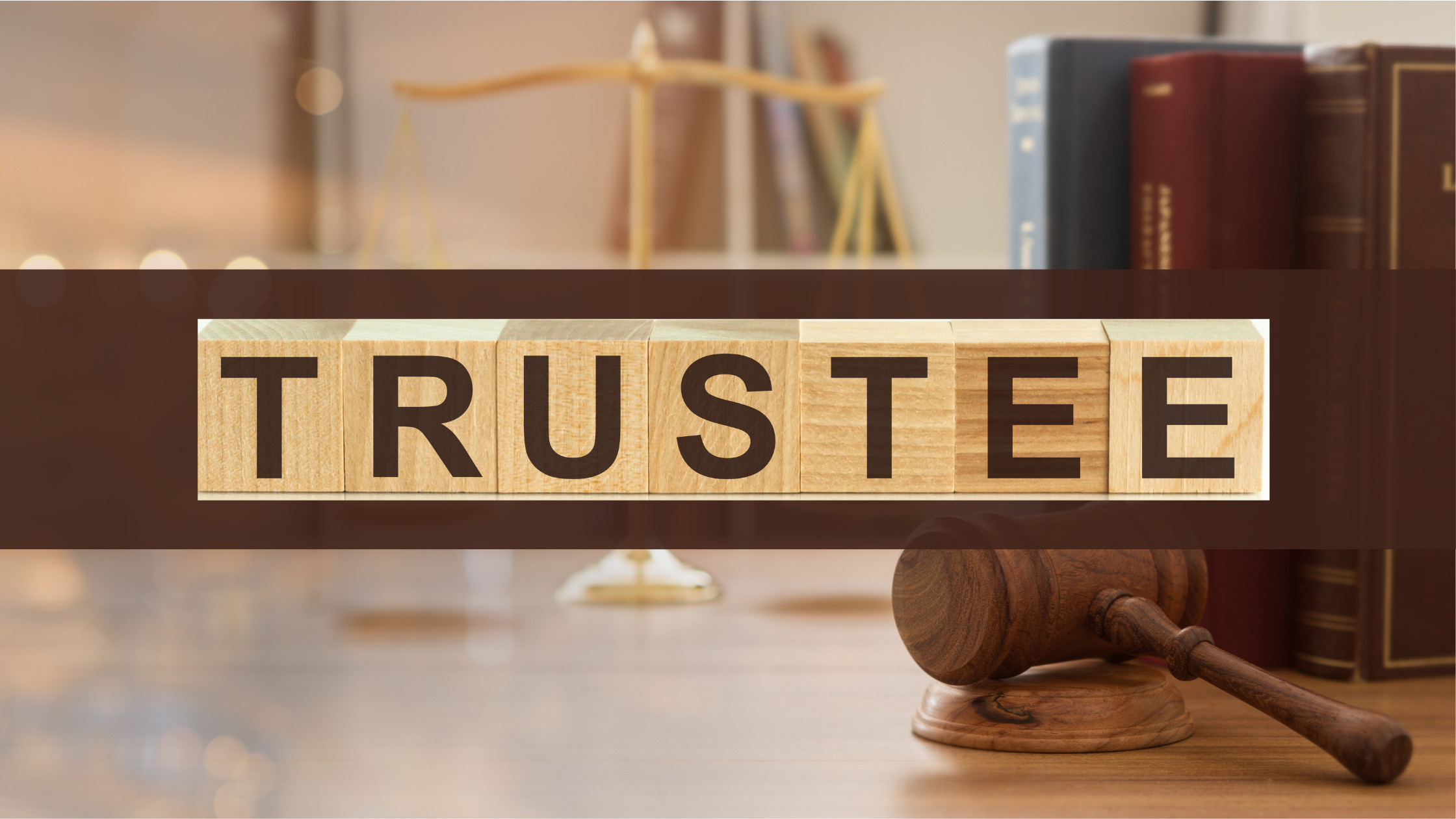If you have a lot of property and other assets, it’s likely that at some point you will want to create a Trust. When you do create a Trust, you’ll have to appoint a Trustee. A Trustee is someone in charge of handling and distributing the assets of a Trust to the beneficiaries. This article talks about what a trustee does and how to choose one who will deal fairly with your estate.
What is a Trust?
A Trust is an agreement where a person transfers property – such as real estate or financial assets – to an entity that holds onto the assets. Assets in the Trust can be invested and are usually managed by someone who is also known as the Trustee.
How do you choose a Trustee?
When you leave your property in a Trust, your estate plan will be implemented by your Trustee, usually called a “Successor Trustee.” Your Trustee does not need to be appointed by a court and will immediately have all the powers and authority you give them in the Trust agreement. Almost anyone over the age of 18 can serve as a Trustee.
You should be careful when choosing your Trustee, so here are some things to keep in mind:
- Choose with family peace in mind: You will leave a better legacy if your affairs are managed with family peace as your main goal. In most families, at least one child is the “peacekeeper” and gets along with each sibling. You want to choose someone who won’t favor one beneficiary over another. A child who is fair, doesn’t fight with siblings, and will follow your rules would be a good Trustee candidate.
- Choose with honesty and loyalty in mind: Nominating a selfish person who may not be honest can be a disaster and may even lead to embezzlement of funds and assets.If your other heirs dispute your Trustee’s honesty, your family may be drawn into lengthy and expensive court action.
- You do not need to nominate an heir or family member: In Utah, any competent adult can serve as your Trustee. You can nominate a friend, relative, pastor, bishop, accountant – anyone you feel will follow your desires. If you choose someone outside your immediate family, always get their permission before nominating them.The benefits to this option are that the person you appoint may not favor one beneficiary over the other and may act with more fairness.
- Your Trustee should have the ability to make difficult decisions: Since Trustees have a lot of responsibilities, they need to be able to make difficult decisions and stick with them. This means knowing when to say “no” to beneficiaries who may mismanage money or assets from the Trust or knowing how to invest assets properly.
- You may nominate several people to serve at a time: Many Utahns nominate two or more people to serve together as Joint Trustees. This may work well in many families, especially blended families. But Joint Trustees who do not get along with each other may create a stalemate where nothing gets done and your money is wasted.
- You should always nominate at least two successors beyond your first choice: You should nominate alternates in case your first choice is unable or unwilling. Also, if something happens to your Trustee such as an accident or sudden death, the Trust has a backup Trustee.
What’s the difference between a Trustee and an Executor?
This is a common question, and to put it simply, a Trustee is someone who manages your Trust and an Executor is someone who manages your affairs after your death. In Utah, executors are also referred to as “Personal Representatives.”
Your Personal Representative is different from a Trustee because he or she will have no authority except to preserve your assets until they are appointed by a probate Utah court. They do not manage the Trust’s assets. When you create a Trust, it does not have to go through probate and the Trustee can continue handling the Trust without needing a court appointment.
If you leave a last Will, your Personal Representative must follow your Will and report to the court. If you do not leave a Will, your Personal Representative will apply the Utah probate code laws of intestacy to divide and transfer your property.
What should I do if I’m appointed as a Trustee?
Being appointed as a Trustee comes with a lot of different responsibilities. When you’re appointed as a Trustee of an estate, you probably aren’t sure what to do. Here is what we recommend:
- Get a copy of the Trust agreement (also called a Declaration of Trust) and read it carefully. Duties, powers, and rules for the Trustee will be found in the Trust agreement, as well as a list of assets and beneficiaries.
- Get a copy of the Utah Uniform Trust Code which governs the duties of Trusts and Trustees in Utah. Read through it carefully.If you do not completely understand your duties, or how the code applies to you, consult with an estate planning lawyer. The cost may be paid from the Trust. You can avoid problems by getting advice early on how to best execute your duties as a Trustee.
- Understand that in handling the Trust, your duty is to put the interests of the beneficiaries first. Unless the Trust agreement says otherwise, you must not:
- Use any assets of the Trust for your own benefit.
- Mix money from the Trust with your own money. Never put assets in your own account or in your name.
- Favor one beneficiary over another.
Doing any of these things can get you into serious legal trouble, leading up to trust litigation and criminal charges against you.
- Understand your duty to keep accurate records for every asset and every transaction of the Trust – every dollar spent, and every dollar received. Be very careful. You can be sued by the beneficiaries for every dollar you cannot track, and for every dollar you have used without authority.
- Be prepared to give annual accountings (detailed financial reports) to every qualified beneficiary of the Trust who asks. A qualified beneficiary is anyone who would be entitled to receive money or property from the Trust if it were to end in the present year.Your accounting must list all trust assets, debts, receipts, and disbursements. Beneficiaries are also entitled to copies of Trust documents. You can work with an accountant to help you keep financial records of the Trust. The cost of an accountant can be paid from the Trust.
- You must manage and invest trust assets with the utmost care and handle the assets in a reasonable manner.Remember that you may be sued for losses on investments you should not have made. You can consult with an investment advisor if you’re unsure of how to invest the assets. The cost of an investment adviser may be also paid from the Trust.
Can I choose not to be a Trustee?
If someone appoints you as a trustee, you can choose not to accept the role. In some cases, you may have to write a letter of resignation, even if you never accepted the appointment in the first place.
If you choose to accept the appointment as a Trustee, you can resign at any time if it doesn’t suit you. In some cases though, you may have to help find a Replacement Trustee.
How an estate planning lawyer can help you?
Whether you need to create a Trust, need help appointing a Trustee, or are a Trustee who needs advice on how to handle a Trust, our estate planning lawyers in Kaysville and Ogden want to help you. With 40 years of experience, our attorneys bring have lots of knowledge on how to handle Utah Trusts and will always give you their best advice. Contact us today for a free consultation to see how we can help you.




Leave A Comment